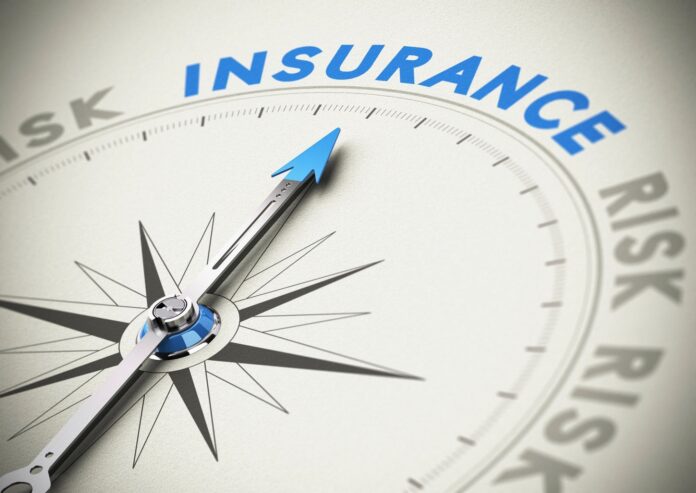It is funny how people look at their insurance and how they value certain things over other things.
Take the case of a business with multiple partners. The partners will diligently work toward building the business. Sometimes this means not taking much of a paycheck and “investing” back into the company to help it grow. This is normal with a start-up, but it also has been common with many businesses who have had major financial impacts from the pandemic. Many companies have failed and many others are teetering, but surviving!
So what do these diligent partners do about protecting the business?
Well of course they buy insurance! But what kind and how much? And what are they actually protecting?
The P&C producer who works with them puts into place all the pertinent business coverages ranging from liability coverages to property insurance plans. This even includes business interruption insurance in the event of a fire, theft, vandalism, etc. (But not a death or disability!).
Next comes the benefits producer who helps the business and its employees with medical, life and perhaps some group disability.
This leaves the remaining pieces for the business insurance plans.
Buy-Sell
Every business with more than one person involved needs to formulate a plan of how to dissolve the partnerships in the event of a business dissolution, death or a disability. A death or disability cannot be planned, but is insurable. In the absence of a written plan, new, uninvited, partners could enter following one of these events. Unfortunately, what most business partners think is that of these three situations, only a death could cause this sort of problem! Very wrong!
A disability is worse to the company. There is no “finality.” A disabled owner has a different mind-set. They are no longer interested in growing the business. They are now in survival mode and need salary, benefits and maybe even part of the profits!
A buy-sell agreement forces a disabled owner to sell their ownership, but in exchange for a financial reward. In the absence of insurance, a company will be forced to come up with the funds either through company savings, a loan, or if there is not enough of either…A company sale!
A company that doesn’t have the financial protection for its buy-sell also puts every employee at risk of losing their job! Uncertainty is also a major destroyer from outside sources such as competitors who can take advantage of a “disabled” company. Suppliers also get nervous without the owner in full operation.
The Magic Castle has been a wonderful home for professional magicians for decades. Two brothers basically ran the operation. When Bill Larson passed away, it was revealed that he would personally take out a loan each year to carry the club through the “thin times” until all dues were collected and the loan would be paid off and the process would continue once again. Upon Bill’s passing, the bank no longer was willing to do this as the main principal was no longer involved with the company! It took years for the club to turn around and redevelop the business operation and repair the damage done by the passing of the main partner.
Business Overhead
A business owner or a major partner who becomes disabled also affects the stability of a company through a more immediate basis because, with the absence of a central owner, the bills must still be paid!
Even a relatively small business can have huge monthly expenses and, with no income coming in, these expenses can destroy a company within a very short time. These expenses can include, but not limited to:
Insurance
Rent/Mortgage
Utilities
Professional Memberships and licenses
Staff Salary
A law firm needs an attorney to generate the cash flow. A dentist office needs a dentist to keep the cash flow moving. Most businesses need the key person or owner to maintain the cash flow into the business.
At first bills will be paid from company savings but as time goes on, without generating new funds, bills will either be ignored or paid from the sale of the business (or the owners personal savings). As this occurs, the business will spiral into a total loss.
Every business owner has business interruption insurance built into their business coverages. Business interruption insurance says that should you not be able to open your doors Monday morning because of a fire, theft, vandalism, etc., the overhead expenses will continue to get paid. What if the reason you cannot open the door Monday morning is because you cannot open your doors?
Excess Disability
Business disability plans, like life insurance, are pennies on the dollar and protect the business and employees as much as the owners’ hard earned investments. Oftentimes sufficient amounts of business disability insurance coverages cannot be obtained from one source, which is when the need for excess coverages are used.
For example, if a buy-sell valuation indicates the need for $10,000,000 and there are two partners, it is logical that both will need $5,000,000. Getting $5,000,000 of life insurance is easy, but many disability carriers will only issue a maximum of $2-$3 million for disability insurance. The excess disability insurance markets can add a layer over the maximum issued from the base coverage to bring a company’s coverage up to sufficient amounts.
Bottom line is that in the world of disability insurance we often think of just one person involved when a disability occurs. The reality is that the disablement of the one can impact the whole business! In this case, businesses can become disabled too and need proper protection!




























